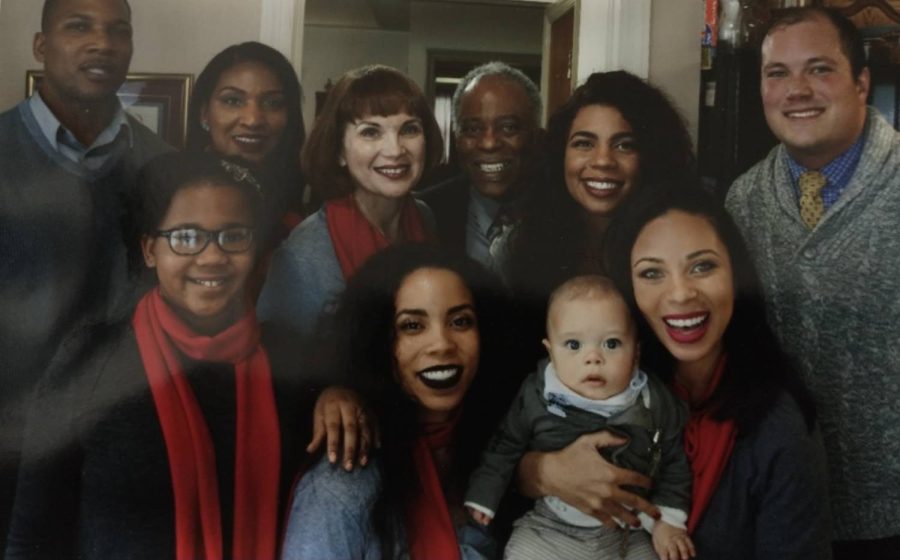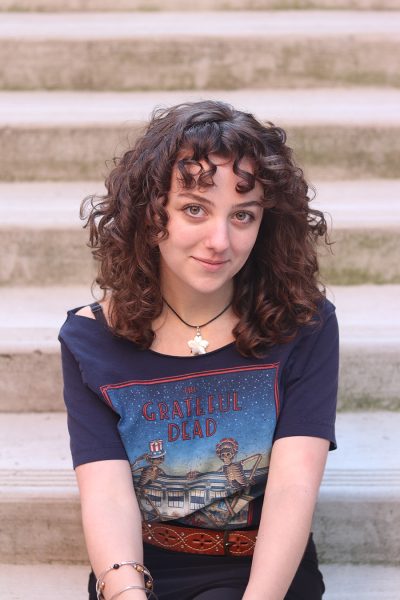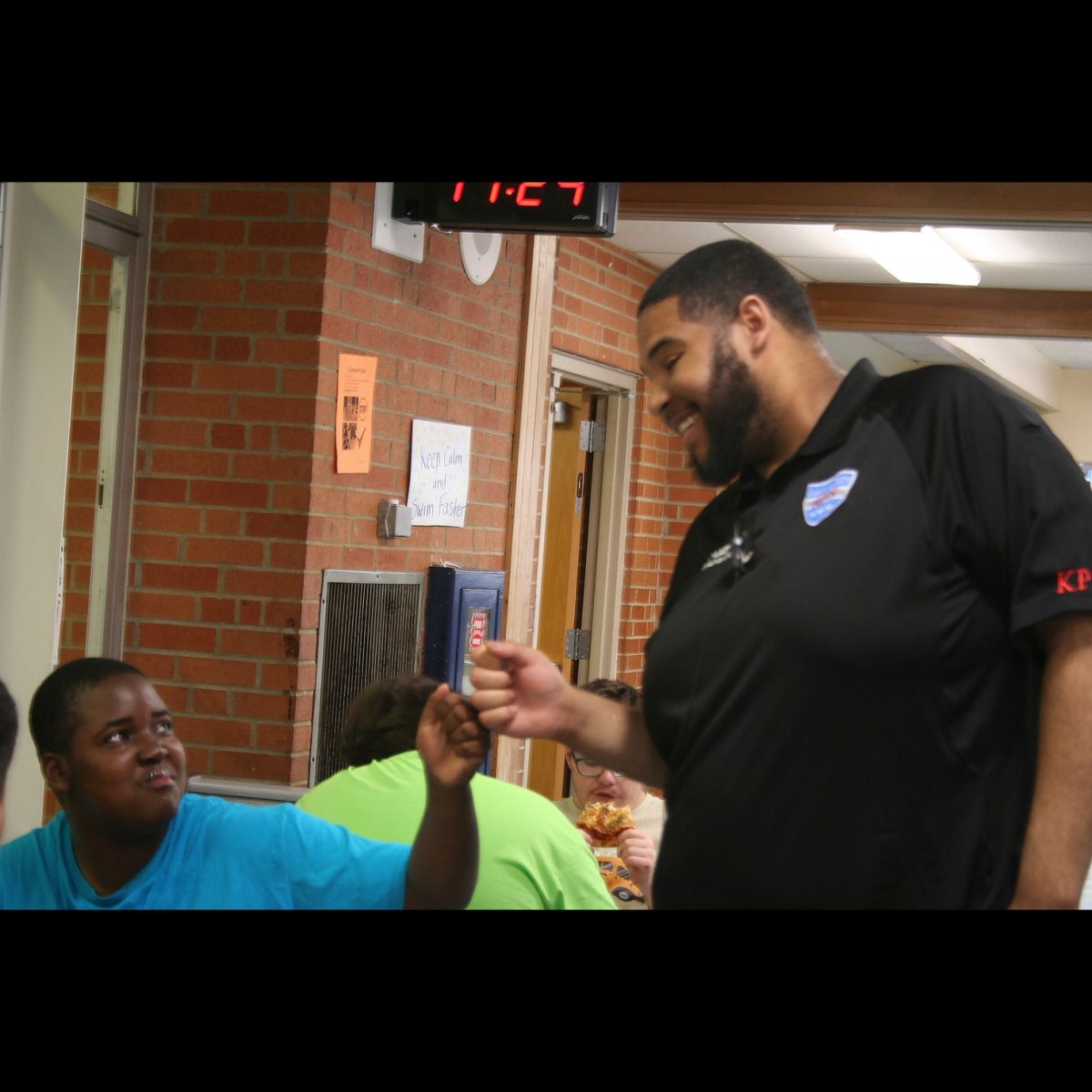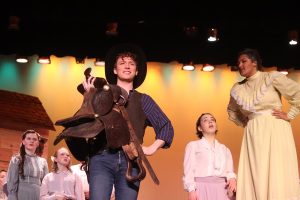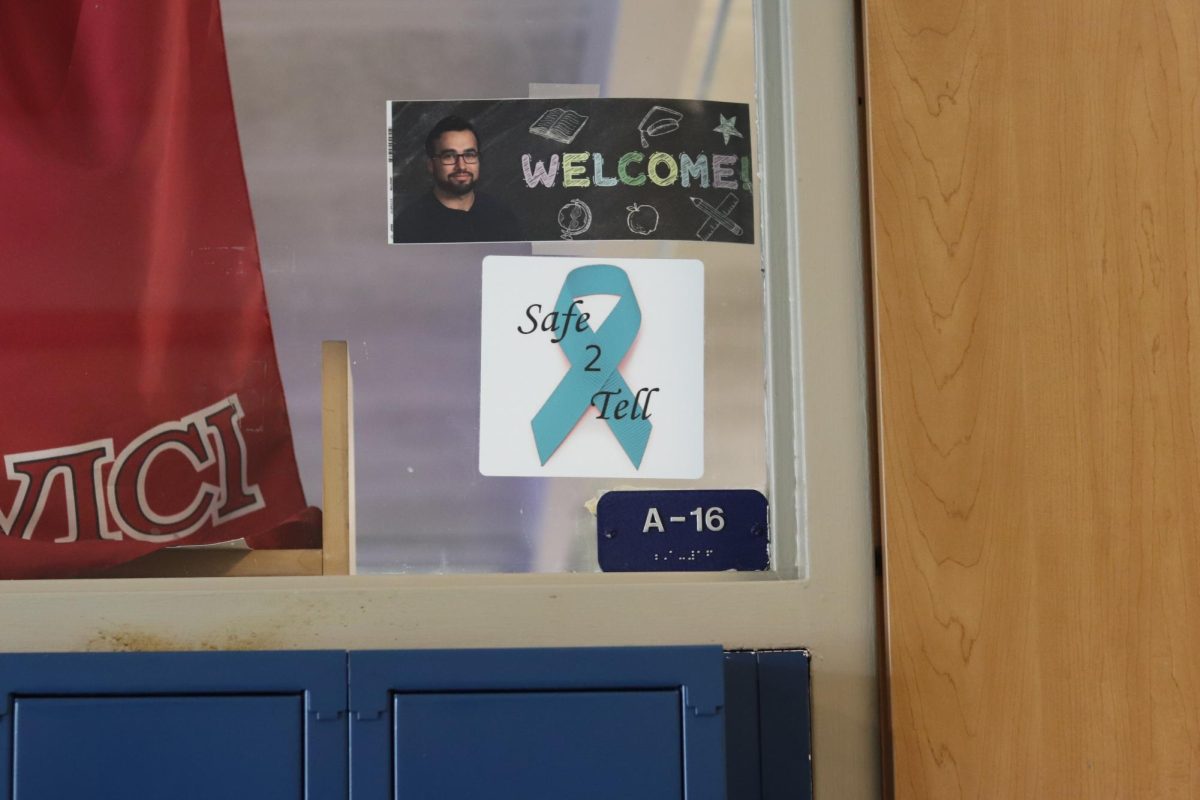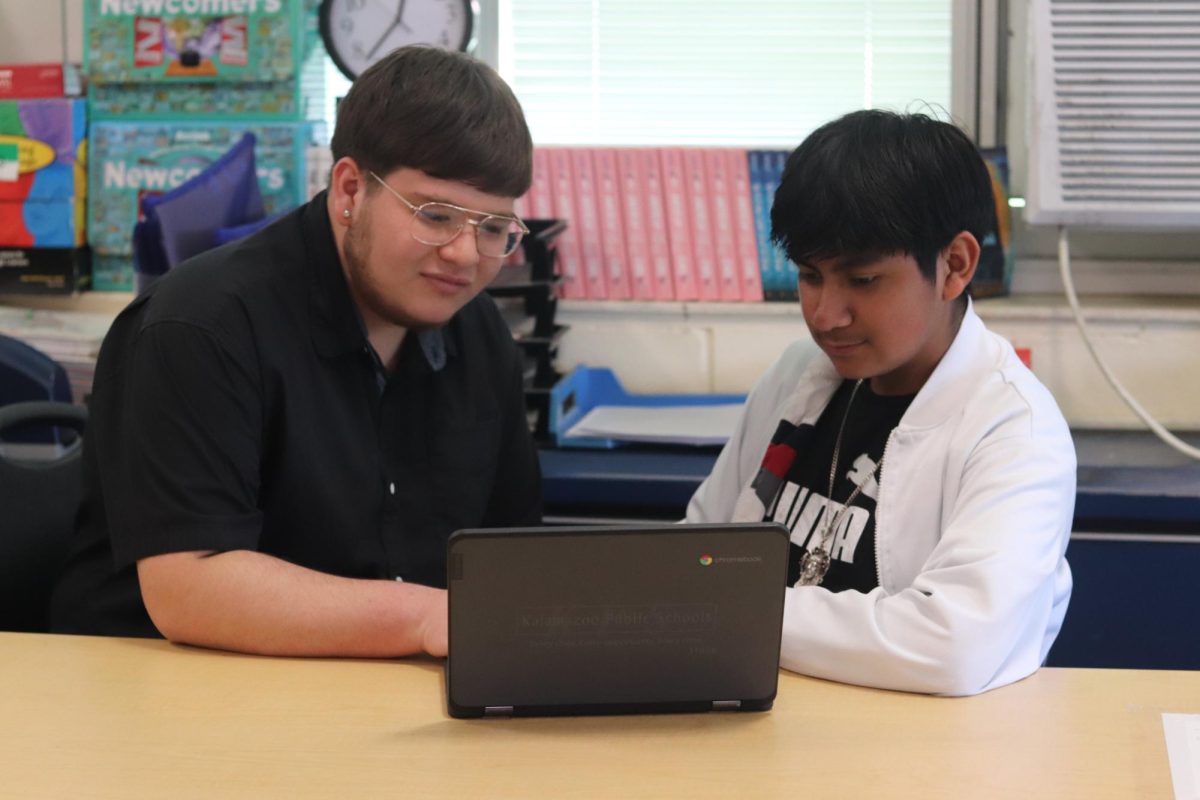Students share their holiday traditions
Credit: Guest Photographer
Savannah Robert (left, middle) with her family. Every year, they take a photo with everyone to celebrate being together for the holidays.
December 21, 2022
For years, the late-December to early-January break has been called “Winter Break” or “Winter Recess” in Kalamazoo Public Schools (KPS). Still, the generally-accepted mindset is that the break is for Christmas and New Year, not for all holidays that could be celebrated during the winter season.
Holidays like Hanukkah, Las Posadas and Chinese New Year don’t fall entirely within the dates of Winter Break. Ones that do fall within the dates, like Kwanzaa, aren’t widely recognized.
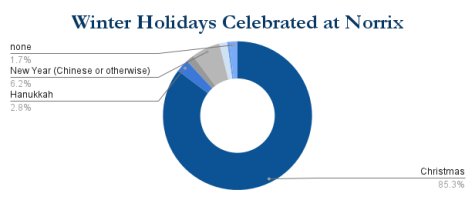
Although Christmas is celebrated by 85.3% of Loy Norrix students, there are still students who celebrate other holidays that aren’t well-represented.
One of these students is freshman Savannah Robert, who celebrates Kwanzaa in addition to Christmas. Although her parents are divorced, she is still able to celebrate both holidays with her family.
This year, she’s with her dad for Winter Break, so she’ll celebrate Kwanzaa with them. Each year, they have specific traditions that they follow for the holiday.
“[Kwanzaa] is a celebration of seven days and each day represents a different self-affirmation like unity, self-determination,” said Robert. “I forget the other ones, but it’s one for each day, and you light candles every day. So we’ll start off lighting the candles and talking about what Kwanzaa means every year, and every day also has a different type of activity where you offer something to the altar… you offer different foods and there’s also a cup that’s drinken out of on the last day, traditionally. Then at the end on New Year’s, there’s a big celebration where there’s food, activities, and an exchanging of gifts.”
Originating in 1966, Kwanzaa is a holiday meant to highlight African culture, values and traditions.
Out of a group of 156 surveyed Loy Norrix students, 3 students, including Robert, celebrate Kwanzaa. This coincides with the national statistics, which show only 2% of the United States celebrating Kwanzaa, according to NPR.
Despite it only being celebrated by a small minority of people, it’s still recognized by millions of people around the world in the days leading up to the new year.
Robert’s favorite Kwanzaa traditions are the ones she has with her grandmother.
“My grandma, who we celebrate Kwanzaa with, she made this book that’s like a story she made about Kwanzaa, and I really like reading that each year,” Robert said.
In addition to Kwanzaa, Robert’s family also celebrates Christmas, though their traditions vary from the generally-celebrated holiday.
“For Christmas, instead of it being all about gifts, we take it more as a way to give to people,” said Roberts. “So, sometimes with my dad I’ll go and volunteer with him during the Christmas season. We still exchange gifts, but it’s more about giving back than receiving.”
Sophomore Bo Velarde-Chan also celebrates holidays that aren’t included in KPS’s Winter Break. Christmas, Hanukkah, and Chinese New Year are all important celebrations for him and his family.
For Christmas, his celebrations are largely the same as other families’. Gift-giving, a tree, and family time are all important parts of their traditions.
Velarde-Chan also celebrates Hanukkah. For this holiday, his celebrations are also fairly traditional.
“For Hanukkah, we have our menorah and then as the days go on we put a candle for each day,” Velarde-Chan said. “I don’t know how it goes, but we sing this Hanukkah song as well every night, and we light the candles using the Shamash. Depending on the year, we also exchange presents for that holiday as well.”
Like Kwanzaa, Hanukkah is also a less widely-celebrated holiday at Norrix, with only 3% of surveyed students celebrating it.
It’s one of many holidays in Judaism, though according to Rachel Kurand, from the Philadelphia Jewish Exponent, it’s a widely-accepted myth that Hanukkah is the most important Jewish holiday.
Chinese New Year is the last winter holiday Velarde-Chan celebrates. For this holiday, his celebrations are much more casual.
“We usually just hang out with some of my relatives,” said Velarde-Chan. “We have a feast and we eat a lot, and some days we do exchange those little packets of lucky money. I think other times we have celebrated it alone, but we haven’t done that for a while.”
For both Robert and Velarde-Chan, being able to spend time with their families is one of the most important parts of their celebrations.
“My favorite part about the celebrations is that I get to hang out with my family again and just have a day or two with them because sometimes we can be pretty busy,” said Velarde-Chan. “And exchanging gifts just reminds me of how grateful we should be that we’re all together.”

